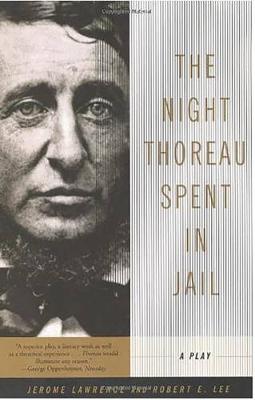Reviewed by Jennifer | Pushing Pages on
This play has a foreword basically idolizing Thoreau's existence. It kicks off on a note that is very direct and blunt about the playwrights' intentions. It made me worried I was in for something I didn't want - and considering I'm so late to actually reading this, as it wasn't part of our assigned reading back when I originally studied Transcendentalism, I wasn't sure how disconnected I'd feel from that overall point.
Regardless of if Thoreau was the man the playwrights fantasized about, the Thoreau in this play - along with his relationship to his brother, the lamenting chorus of his mother, and his apolitical view of what was his modern world - was charming and humorous. I found myself laughing out loud at the clever jokes, and I enjoyed the way the scenes transitioned in and out of Thoreau's time in his cell with Bailey to his life events around his arrest. Thoreau, the character, was wacky, sardonic and separate. But he was so in ways that made his philosophical differences with his world funny to witness and believable.
This definitely made me miss the days of reading and watching more stage plays come to life.
Reading updates
- Started reading
- 5 June, 2018: Finished reading
- 5 June, 2018: Reviewed
